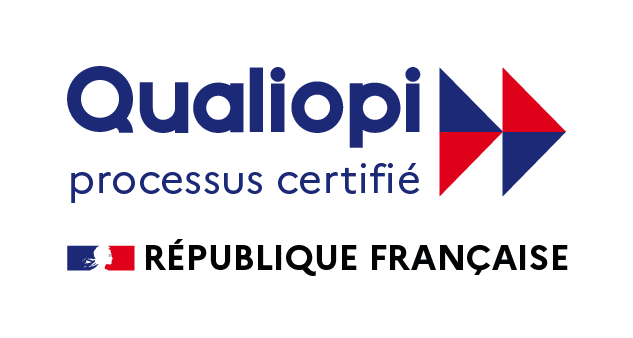In the year of the Olympic and Paralympic Games, companies are showing renewed interest in the skills and values of top-level sport.
And rightly so! Because few people know that top athletes and sportsmen and women have been pioneers in using neuroscience to optimize their mental preparation. Olympic swimmer Michael Phelps, for example, used visualization techniques to enhance his performance, imagining each race in minute detail. Similarly, Novak Djokovic, the tennis player, incorporated meditation and concentration exercises to strengthen his mind, contributing to his 22 Grand Slam titles. Last but not least, FC Barcelona footballers have incorporated neurofeedback into their training, coinciding with their period of dominance in Europe.
A 2016 study ¹ revealed that 75% of Olympic athletes use neuroscience-based mental preparation techniques to improve their performance. This figure is particularly high in Anglo-Saxon countries and Canada, the acknowledged pioneers in this field.
Top-level athletes are often admired for their exceptional performances, their unwavering determination and their ability to push back their limits. However, these athletes also possess transferable skills that can prove invaluable in the corporate world, as presented in a recent book by Mireille Blaess ².
Thanks to neuroscience, these sporting skills can be developed and reinforced in the workplace, giving these organizations a competitive edge. Here’s a look at some of the athlete skills that are particularly relevant to today’s business environment.

1) Adaptability: the key to navigating a constantly changing world

In sport, as in business, the environment is constantly changing. Athletes have to adapt quickly to changing strategies, weather conditions or injuries. Similarly, companies need to be agile to adapt to market developments, new technologies and changing consumer needs.
According to a 2024 report by the Manpower Group, 62 % of leading strategic execution companies recognize the need to increase their ability to adapt quickly to change ³.
Neuroscience has led to a better understanding of the brain mechanisms involved in adaptability. By stimulating certain neuro-mechanisms through exercises that enable a rapid change of perspective on a problem or situation, it is possible to improve cognitive flexibility and the ability to adjust quickly to new challenges.
2) Concentration: a formidable weapon for achieving excellence
Whether on a sports field or in a meeting room, concentration is essential to achieving ambitious goals. From a neuroscientific point of view, the famous “excellence of execution” has its roots in the skills of focus, the ability to follow an objective without being disturbed by distractors.
Top athletes have thus developed a remarkable ability to stay focused despite internal distractions (their own thoughts in the face of the obstacle) and external pressures (such as the public and noise in the stadium).

Research shows that concentration can increase employee productivity by up to 12% ⁴. Les neurosciences ont permis d’identifier les régions cérébrales impliquées dans la concentration et de développer des techniques pour les stimuler.
By practicing mindfulness or meditation exercisesyou can improve your ability to stay focused on a specific task, even in a noisy or stressful environment.
3) Leadership: inspiring and guiding to success

The leadership skills acquired in sport transfer effectively to the corporate world, improving team performance and employee satisfaction. Leadership is crucial to uniting and motivating a team around a common goal. Sports captains develop the communication, decision-making and influencing skills essential to inspire their team-mates.
In an interview, former NFL player Jesse Nading explains how he has applied the lessons of accountability and transparency learned on the field to his role as manager at McKinsey & Company, maximizing the performance of his professional teams ⁵.
Neuroscience has revealed the neural circuits involved in leadership, particularly those linked to empathy, decision-making and emotional management. 79 % of organizations consider ethics and benevolence as fundamental to successful leadership ⁶.
By helping everyone to become aware of these emotional neuro-mechanisms and to pay regular attention to them in their daily lives, it is possible to strengthen leadership skills and inspire others to give their best. The figures prove it: this competence within a group is 3 to 5 times more important for collective performance than IQ ⁷!
4) Perseverance: overcoming obstacles with tenacity
Whether it’s winning a sporting competition or successfully completing a business project, perseverance is essential. Top athletes have learned to overcome challenges and setbacks with remarkable tenacity, refusing to give up despite the obstacles.
Neuroscience shows that perseverance is linked to motivation and motivation and emotion regulation. By stimulating these neuro-mechanisms, we can reinforce the ability to stay motivated and overcome difficulties.
Companies that encourage perseverance among their employees see significant benefits in terms of productivity and overall success. For example, recent studies indicate that companies with highly committed and persevering employees are 21% more profitable and 17% more productive than those with less committed employees ⁸. What’s more, the ability to persevere through difficult times has enabled these companies to recover and grow faster after major economic crises.

5) Efficiency: optimizing performance and achieving excellence
In sport, as in business, efficiency is crucial to achieving ambitious goals. Top-level athletes use training and coaching techniques to achieve their goals. mental preparation to optimize performance and achieve excellence.
Neuroscience shows that active awareness of one’s operating modes (also known as metacognition) improves learning, decision-making and stress management, all of which are essential for excelling in a demanding professional environment.

Efficiency also depends on using the right tools. In sport, performance analysis tools help identify weak points and implement targeted improvement strategies⁹. En entreprise, les systèmes de Talent Intelligence play a similar role, improving productivity through effective data management. For example, Omind has seen an increase of 43 % in operational behaviors thanks to its AI tool, which targets initial needs and suggests personalized development paths to maximize program efficiency 10 .
A word to the wise Omind’s model was initially developed with top athletes, creating a direct link between sporting and professional skills.
6) Resilience: bouncing back from setbacks
Whether following an injury, defeat or professional setback, the ability to bounce back is essential for continued progress. Top athletes have developed a remarkable resilience that enables them to overcome obstacles and bounce back from setbacks.
Neuroscience has identified the neural circuits involved in emotion regulation and stress management, two key elements of resilience. Stimulating these brain regions reinforces ability to manage negative emotions and bounce back from difficultiesThis is an invaluable skill in a constantly changing professional environment.
Resilient companies have shown a notable ability to overcome economic crises. For example, during the financial crisis of 2007-2009resilient companies generated around 20 % additional returns for shareholders compared with their peers. This figure climbed to 50 % during the recovery period from 2009 à 2011and at 120 % during the stable period 2011 à 2017. Cette tendance s’est poursuivie durant la COVID-19 pandemicwhere resilient companies recorded 10% additional returns returns to shareholders during the economic downturn and 50 % during the recovery period11.
By using neuroscience to cultivate these corporate sport skills, organizations can create a sustainable competitive advantageThe result is improved team performance and employee satisfaction. By encouraging adaptability, focus, leadership, perseverance, efficiency and resilience, they give themselves the means to meet the most ambitious challenges and achieve excellence in a constantly changing world.
So, in 2024, it’s decided: we’re adopting mental preparation as a managerial performance tool!
Curious to find out how neuroscience can help you integrate these sporting skills into your business? Contact us to find out more!
Authors: Sébastien Staquet (Professional Coach, Mental Trainer, Consultant & Trainer, certified in Omind tools), Clémence Guillaud (Marketing & Communication Manager – Omind) and Clarisse Pamiès (General Manager – Omind)
¹ Smith, J. (2016). “Mental Preparation Techniques in Elite Athletes: A Study.” Journal of Sports Psychology.
² Blaess, Mireille. Le sportif de haut niveau, une richesse pour l’entreprise. Editions L’Harmattan, 2024
³ ManpowerGroup The Age of Adaptability: 2024 Workforce Trends Report
⁴ Employee wellbeing, productivity, and firm performance: Evidence from 1.8 million employees
⁷ Woolley, A. W., Chabris, C. F., Pentland, A., Hashmi, N., & Malone, T. W. (2010). Evidence for a collective intelligence factor in the performance of human groups. science, 330(6004), 686-688.
⁸ 11 Employee Engagement Statistics You Should Know For 2024.” Wellable, 2024
10 DataBase Omind 2024, 60-day pre/post Ascent program measurements

